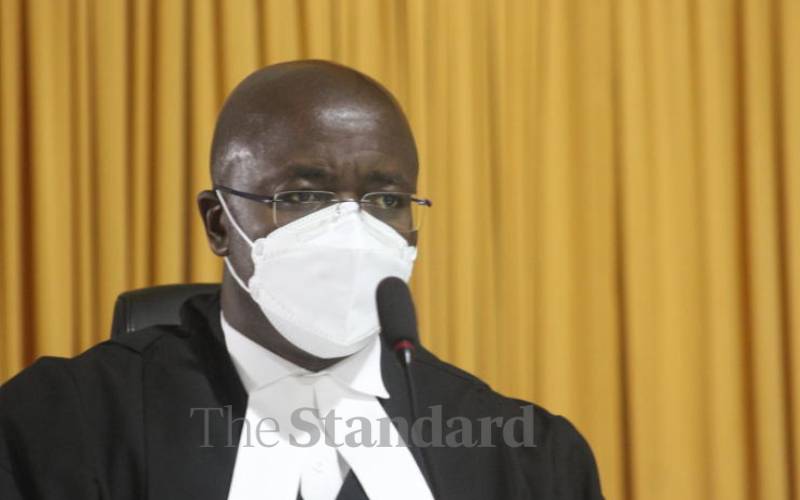×
The Standard e-Paper
Fearless, Trusted News

Justice Patrick Kiage during the hearing of the Building Bridges Initiative (BBI) appeal. [Collins Kweyu, Standard]
It was a tiring, boring experience as the seven Court of Appeal judges read their individual verdicts.